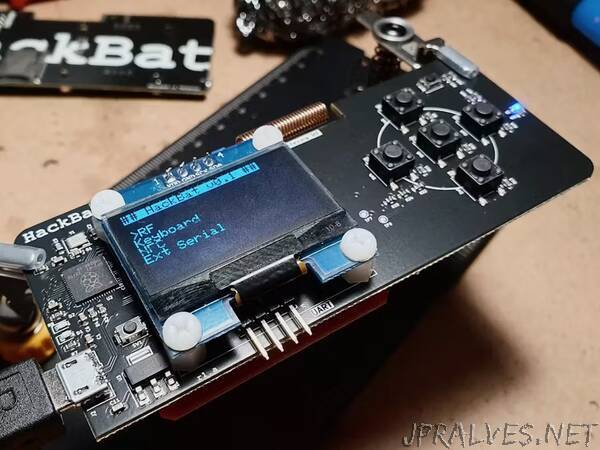
“An open-source hacking hardware platform based on the RP2040 with RF, NFC, USB, and SD card ready for pen testing research.
In the cybersecurity field, engineers are always looking for vulnerabilities in order to fix them and prevent other actors could taking advantage of them. The tools used by these engineers can be expensive and, on many occasions, the tools don’t fit exactly with the requirements that engineers need. In this project, I want to present an open-source hardware platform with some tools used in cybersecurity, especially in pen testing. The board is named Hackbat and features an RF transceiver, NFC communication, SD card, USB, and WIFI. All of this is managed by the Raspberry PI microcontroller RP2040. The schematic and the PCB design are open-source and are available on GitHub. Let’s take a part-by-part look at the Hackbat.
RP2040
The Raspberry Pi microcontroller RP2040 is the brain of the Hackbat. The main features of this MCU are:
- Dual-core Arm Cortex-M0+ processor, flexible clock running up to 133 MHz 264kB on-chip SRAM
- 2 × UART
- 2 × SPI controllers
- 2 × I2C controllers
- 16 × PWM channels
- 1 × USB 1.1 controller and PHY, with host and device support
- 8 × Programmable I/O (PIO) state machines for custom peripheral support
- Operating temperature -40°C to +85°C
- Drag-and-drop programming using mass storage over USB
- Low-power sleep and dormant modes
- Temperature sensor
- Accelerated integer and floating-point libraries on-chip
The RP2040 can be programmed using Arduino IDE, Python or C++.”
